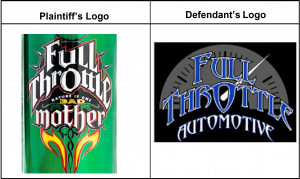 New Albany, Indiana – Poulsen Roser A/S (“Poulsen”), the Plaintiff, is a family-owned company allegedly world-famous for breeding distinctive rose varieties. Apparently due to this notoriety, Poulsen obtains patent and trademark protection for its roses throughout the world, including the United States. According to the Complaint, Poulsen developed a unique currant red hybrid tea rose variety branded with the trademark INGRID BERGMAN (the “Mark”) in the early 1980s. In addition to being a world-renowned rose and receiving numerous awards, the INGRID BERGMAN rose was apparently inducted into the World Federation of Rose Societies’ Rose Hall of Fame in 2000.
New Albany, Indiana – Poulsen Roser A/S (“Poulsen”), the Plaintiff, is a family-owned company allegedly world-famous for breeding distinctive rose varieties. Apparently due to this notoriety, Poulsen obtains patent and trademark protection for its roses throughout the world, including the United States. According to the Complaint, Poulsen developed a unique currant red hybrid tea rose variety branded with the trademark INGRID BERGMAN (the “Mark”) in the early 1980s. In addition to being a world-renowned rose and receiving numerous awards, the INGRID BERGMAN rose was apparently inducted into the World Federation of Rose Societies’ Rose Hall of Fame in 2000.
Poulsen claims the Mark, protected under U.S. Federal Trademark Reg. No. 2,990,814 (the “‘814 Registration”), has been used in U.S. commerce continuously since 1986. Pursuant to 15 U.S.C. § 1057(b), Poulsen claims the ‘814 Registration is prima facie evidence of the validity of the Mark, Poulsen’s ownership of the Mark, and Poulsen’s exclusive right to use the Mark in commerce. Only Poulsen possesses the consent of the heirs of the actress Ingrid Bergman to use her name in connection with roses.
 Indiana Intellectual Property Law News
Indiana Intellectual Property Law News














